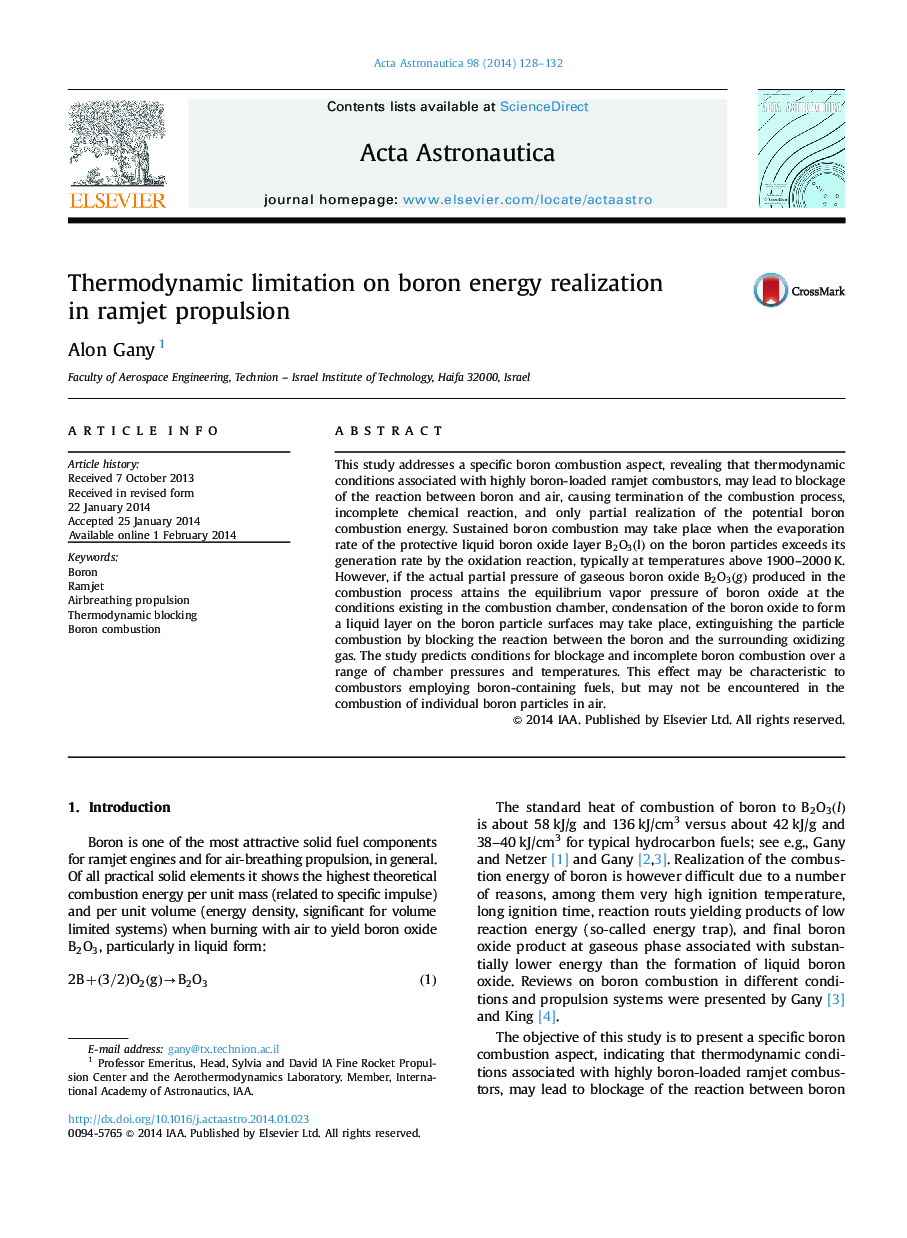| Article ID | Journal | Published Year | Pages | File Type |
|---|---|---|---|---|
| 1714656 | Acta Astronautica | 2014 | 5 Pages |
•Boron has a remarkable theoretical heat of reaction with air.•In boron loaded combustor saturation of boron oxide vapor may take place.•Condensation of boron oxide on the boron particles causes extinguishment.•Thermodynamic blocking of reaction may cause poor combustion efficiency in ramjets.
This study addresses a specific boron combustion aspect, revealing that thermodynamic conditions associated with highly boron-loaded ramjet combustors, may lead to blockage of the reaction between boron and air, causing termination of the combustion process, incomplete chemical reaction, and only partial realization of the potential boron combustion energy. Sustained boron combustion may take place when the evaporation rate of the protective liquid boron oxide layer B2O3(l)B2O3(l) on the boron particles exceeds its generation rate by the oxidation reaction, typically at temperatures above 1900–2000 K. However, if the actual partial pressure of gaseous boron oxide B2O3(g)B2O3(g) produced in the combustion process attains the equilibrium vapor pressure of boron oxide at the conditions existing in the combustion chamber, condensation of the boron oxide to form a liquid layer on the boron particle surfaces may take place, extinguishing the particle combustion by blocking the reaction between the boron and the surrounding oxidizing gas. The study predicts conditions for blockage and incomplete boron combustion over a range of chamber pressures and temperatures. This effect may be characteristic to combustors employing boron-containing fuels, but may not be encountered in the combustion of individual boron particles in air.
